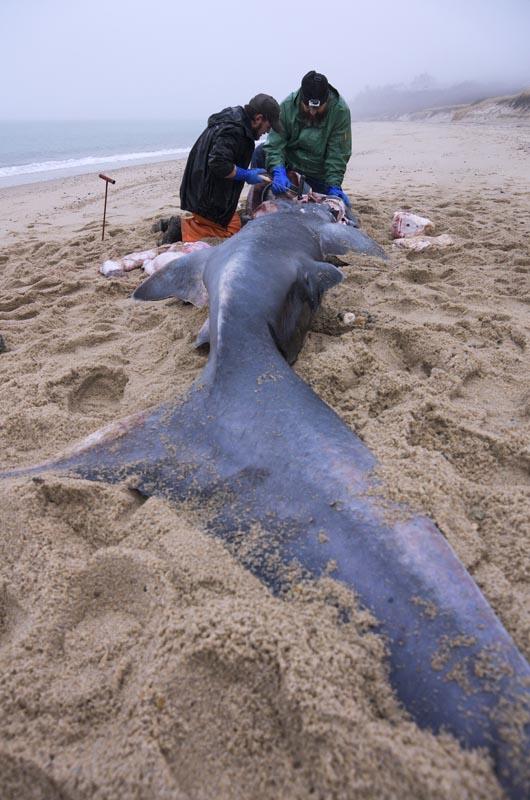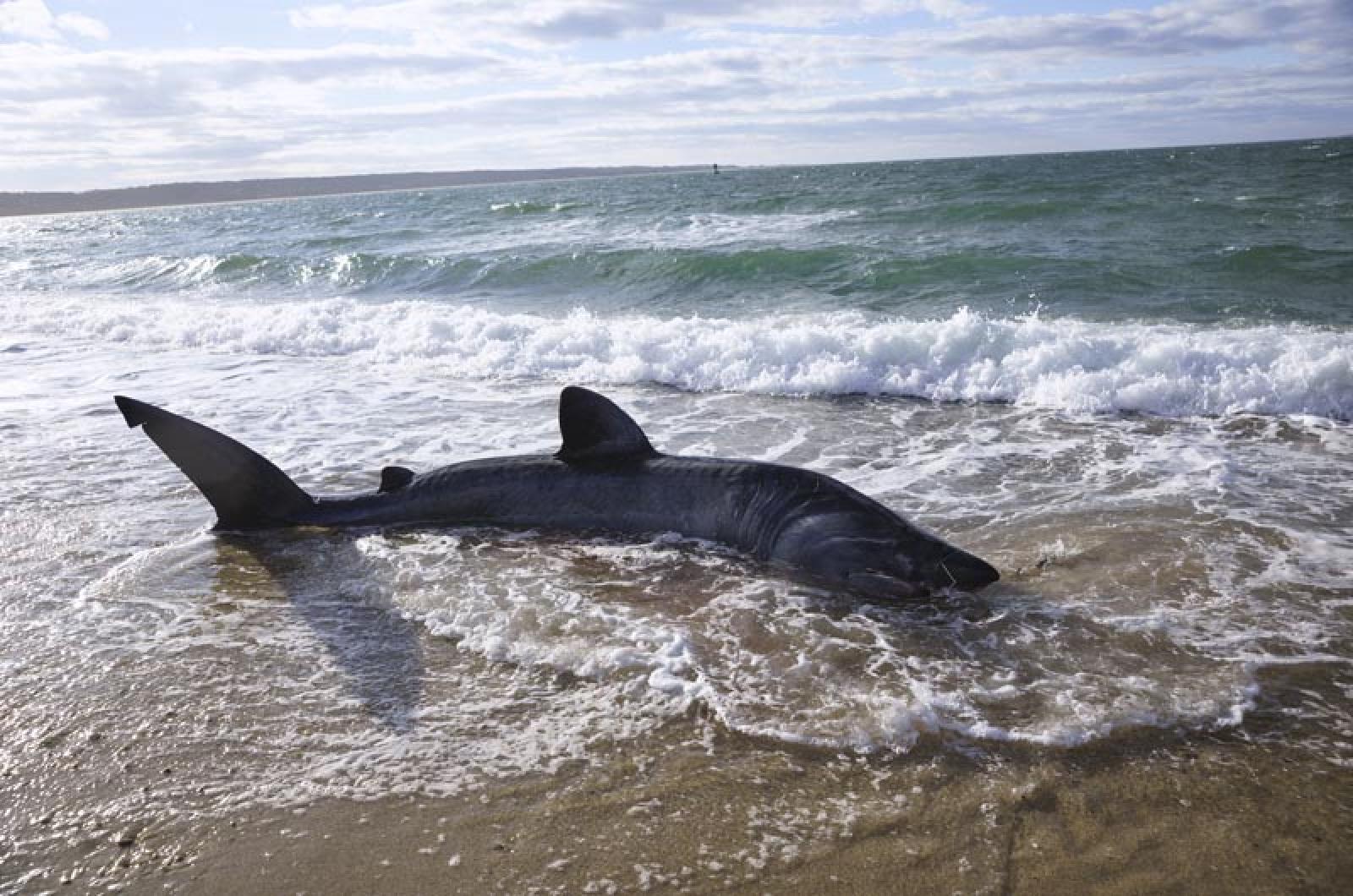“Open wide and say ahh!” This is one fish that would be a dentist’s dream.
It wasn’t a dentist who found a dead basking shark at Menemsha Beach last weekend. Word of it was first reported via Facebook and, soon enough, it had drawn an open-mouthed crowd.
The basking shark — the second largest living fish — boasts an even more mammoth mouth than those onlookers. It can open it more than four feet vertically and three feet horizontally, allowing for quite conspicuous consumption.
More than 2,000 tons of water can be strained per hour though this opening. To give a sense of how much water that is, imagine the amount of water in (almost) 20 typical swimming pools!

As passive feeders, basking sharks cannot suck in water. Water enters its mouth just by the action of it opening up and swimming along. Within its mouth and extending from its gills are gill rakers that act as strainers for the flavorful bits in its path. These gill rakers are comparable to whale baleen, though they are smaller and less substantial. The basking shark’s favorite foodstuff is plankton, the floating plants and animals found in the water.
There is no need to fear this fish: its filter-feeding is limited to these small morsels that pass through its cavernous cavity. Although the basking shark has hundreds of teeth, they are very short and tiny, and do little damage to anything other than its preferred planktonic prey.
Humans are of way more concern to this shark than it is to us. The snout of the shark found at Menemsha was wrapped with fishing line, though the amount of line was not substantial enough to cause the death of the more than 13-foot long animal. A team of fisheries biologists came from state and federal agencies on Tuesday to do a necropsy (animal autopsy) on the shark.
These scientists examined the shark’s skin, organs, gills (and gill rakers) and mouth, and took samples for additional research. They noted that this juvenile female was not robust and had a limited amount of food in her stomach. Their observations, and the fact that this is the latest (or earliest) basking shark sighting recorded in our area, point to a fish in the wrong place at the wrong time.
Basking sharks are more typically found here during the summer months. These big beasts should be much farther south this time of year as they migrate, following the plentiful plankton blooms. One tagged basking shark was found as far south as Brazil.
The population of basking sharks has declined greatly over the last 75 years, some sources suggesting by almost 80 per cent. Historically, this fish was sought for many reasons and has been known to be an easy catch. They habitually skim or bask along the ocean’s surface and swim only about three miles an hour.
Before the widespread use of petroleum, oil from the liver of a basking shark provided a great and ample supply of lamp fuel. One shark could produce 1,500 liters of oil, and it was thus a cost-effective and valuable target, since the liver made up 25 per cent of the shark’s hefty body weight.
The shark’s hide provided leather and its fins are a desired ingredient in shark fin soup. Asian traditional medicine also purports that shark fins are useful for health and sexual vigor.
Today the commercial fishing of this species is banned in U.S. waters, and countries throughout the world are participating in conservation measures.
Peter Benchley of Jaws fame spoke in favor of these conservation measures when he spoke so affectionately about all sharks:
“Sharks have everything a scientist dreams of. They’re beautiful — God, how beautiful they are! They’re like an impossibly perfect piece of machinery. They’re as graceful as any bird. They’re as mysterious as any animal on earth. No one knows for sure how long they live or what impulses — except for hunger — they respond to. There are more than two hundred and fifty species of shark, and every one is different from every other one.”
This beast was the embodiment of Benchley’s sentiments. For the scientists and all of us that saw the magnificent creature, we could only be awed, if not speak as eloquently.
Suzan Bellincampi is director of the Felix Neck Wildlife Sanctuary in Edgartown.






Comments
Comment policy »